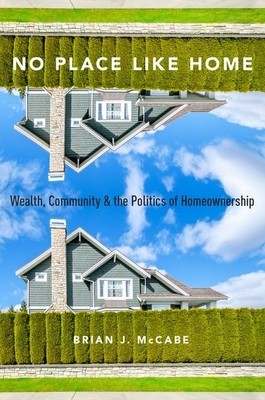
- We will send in 10–14 business days.
- Author: Brian J McCabe
- Publisher: Oxford University Press, USA
- ISBN-10: 0190270462
- ISBN-13: 9780190270469
- Format: 15.5 x 23.1 x 1.5 cm, softcover
- Language: English
- SAVE -10% with code: EXTRA
Reviews
Description
In the decade following the housing crisis, Americans remain enthusiastic about the prospect of owning a home. Homeownership is a symbol of status attainment in the United States, and for many Americans, buying a home is the most important financial investment they will ever make. We are deeply committed to an ideology of homeownership that presents homeownership as a tool for building stronger communities and crafting better citizens.
However, in No Place Like Home, Brian McCabe argues that such beliefs about the public benefits of homeownership are deeply mischaracterized. As owning a home has emerged as the most important way to build wealth in the United States, it has also reshaped the way citizens become involved in their communities. Rather than engaging as public-spirited stewards of civic life, McCabe demonstrates that homeowners often engage in their communities as a way to protect their property values. This involvement contributes to the politics of exclusion, and prevents particular citizens from gaining access to high-opportunity neighborhoods, thereby reinforcing patterns of residential segregation. A thorough analysis of the politics of homeownership, No Place Like Home prompts readers to reconsider the power of homeownership to strengthen citizenship and build better communities.EXTRA 10 % discount with code: EXTRA
The promotion ends in 18d.06:01:30
The discount code is valid when purchasing from 10 €. Discounts do not stack.
- Author: Brian J McCabe
- Publisher: Oxford University Press, USA
- ISBN-10: 0190270462
- ISBN-13: 9780190270469
- Format: 15.5 x 23.1 x 1.5 cm, softcover
- Language: English English
In the decade following the housing crisis, Americans remain enthusiastic about the prospect of owning a home. Homeownership is a symbol of status attainment in the United States, and for many Americans, buying a home is the most important financial investment they will ever make. We are deeply committed to an ideology of homeownership that presents homeownership as a tool for building stronger communities and crafting better citizens.
However, in No Place Like Home, Brian McCabe argues that such beliefs about the public benefits of homeownership are deeply mischaracterized. As owning a home has emerged as the most important way to build wealth in the United States, it has also reshaped the way citizens become involved in their communities. Rather than engaging as public-spirited stewards of civic life, McCabe demonstrates that homeowners often engage in their communities as a way to protect their property values. This involvement contributes to the politics of exclusion, and prevents particular citizens from gaining access to high-opportunity neighborhoods, thereby reinforcing patterns of residential segregation. A thorough analysis of the politics of homeownership, No Place Like Home prompts readers to reconsider the power of homeownership to strengthen citizenship and build better communities.

Reviews